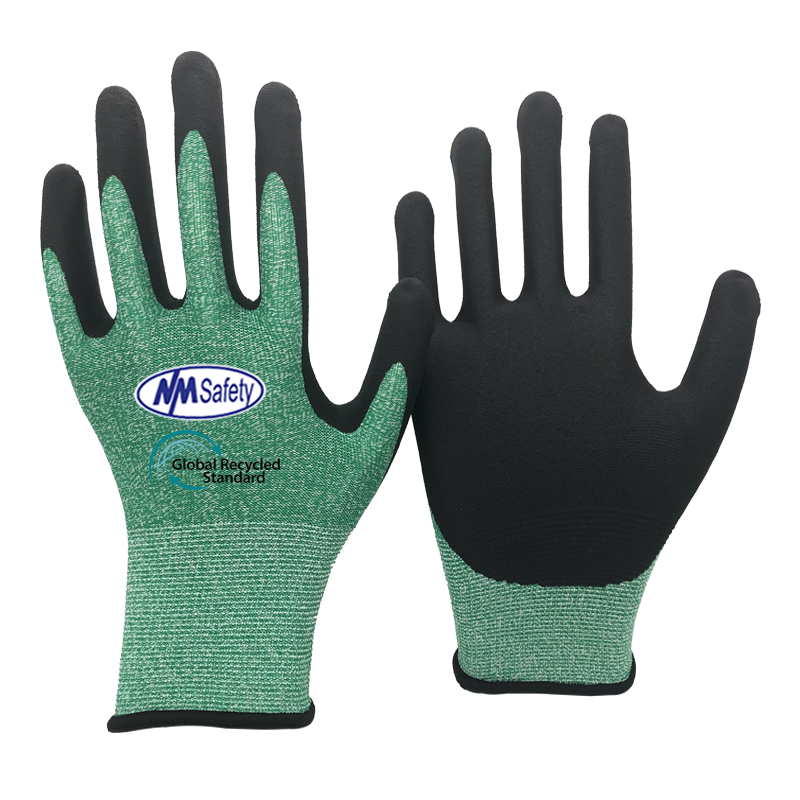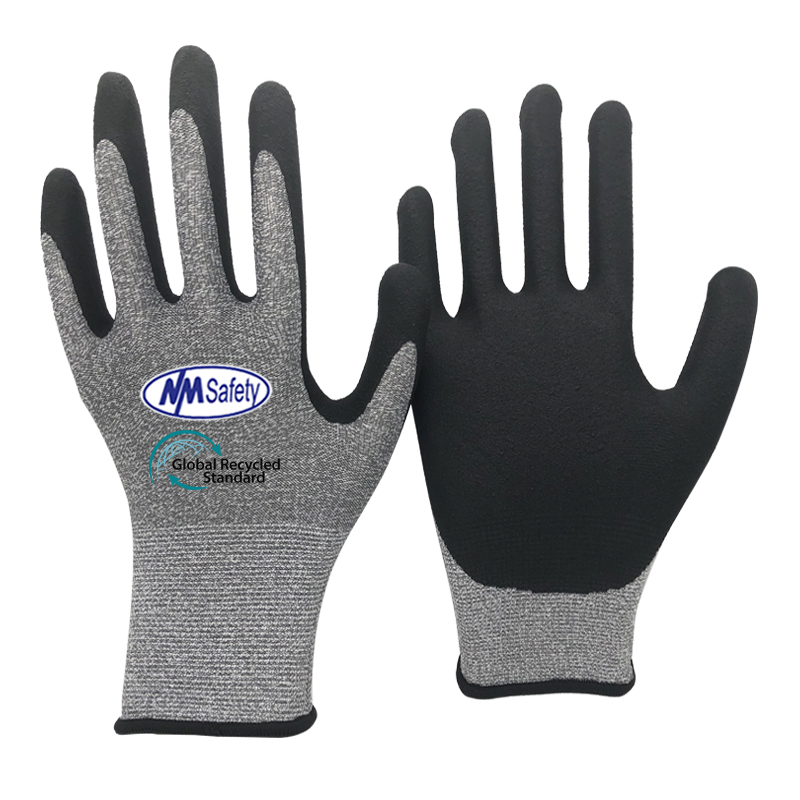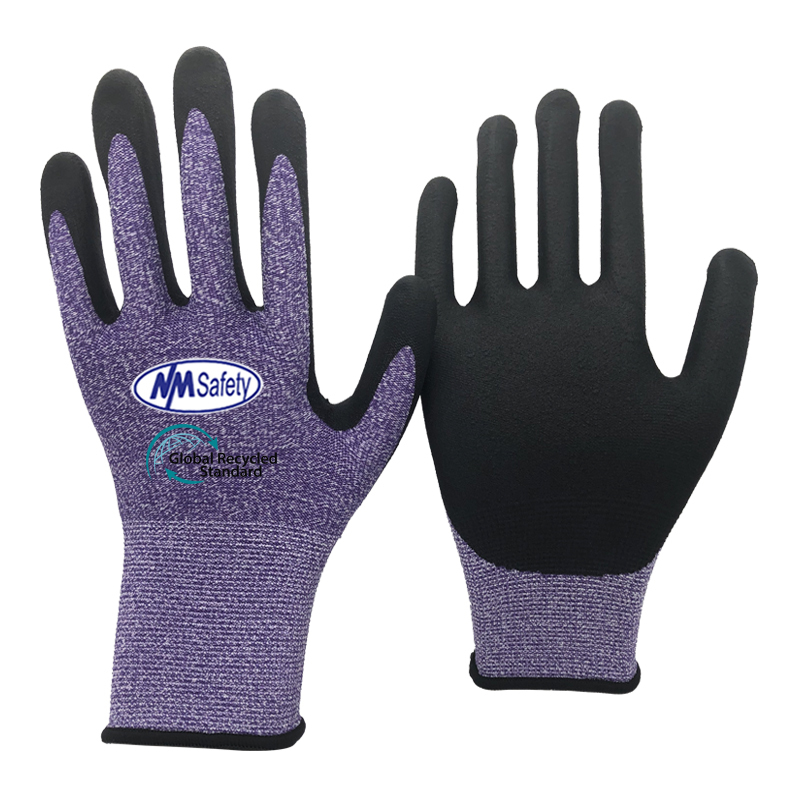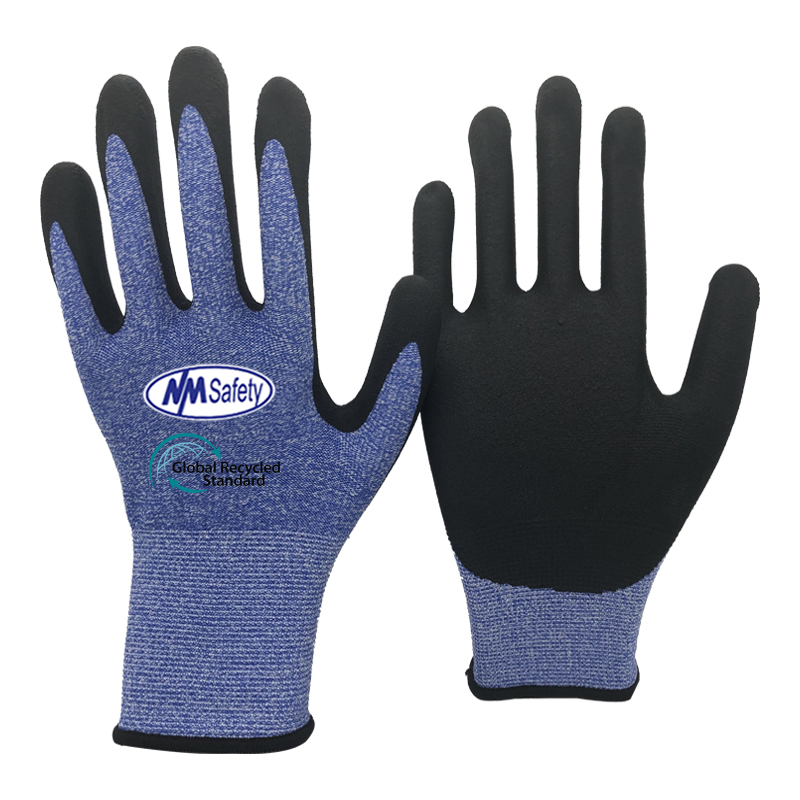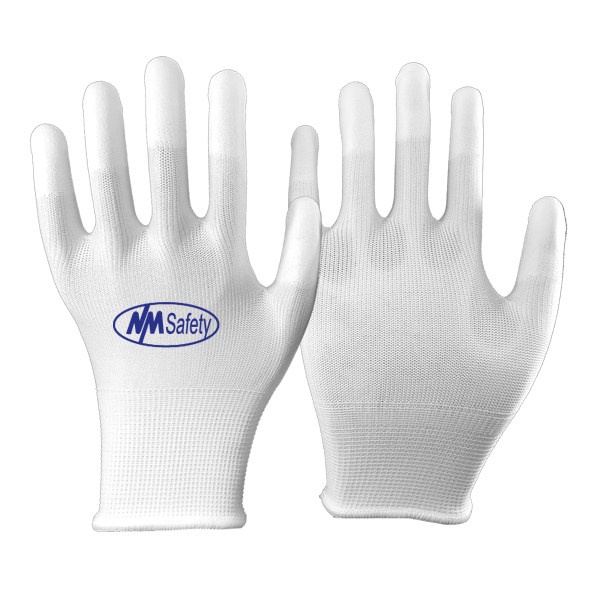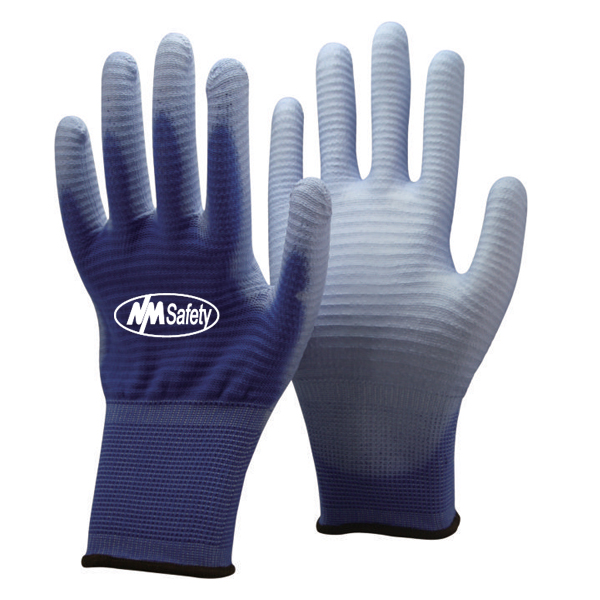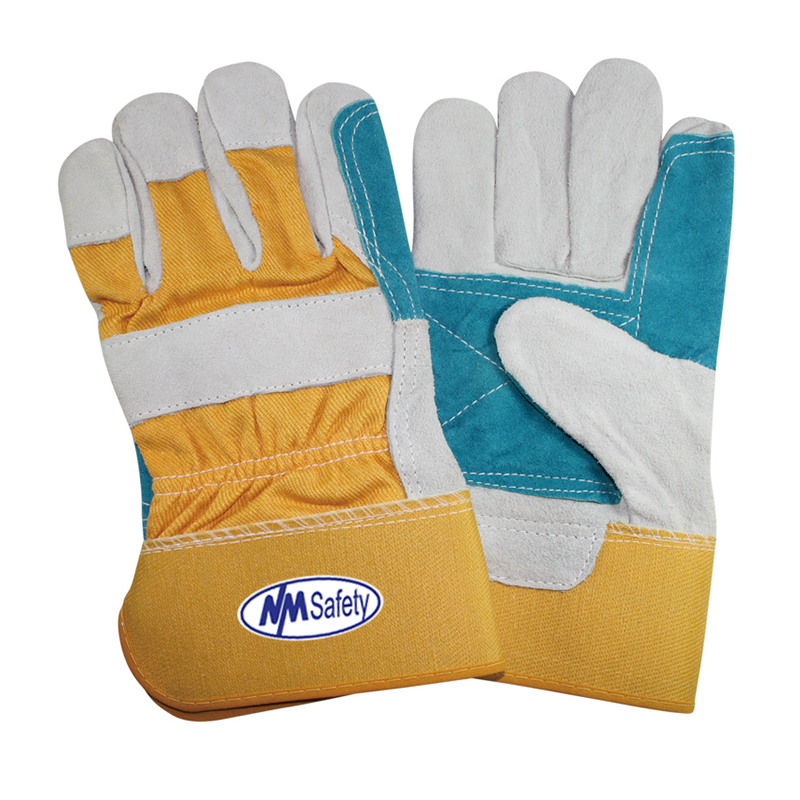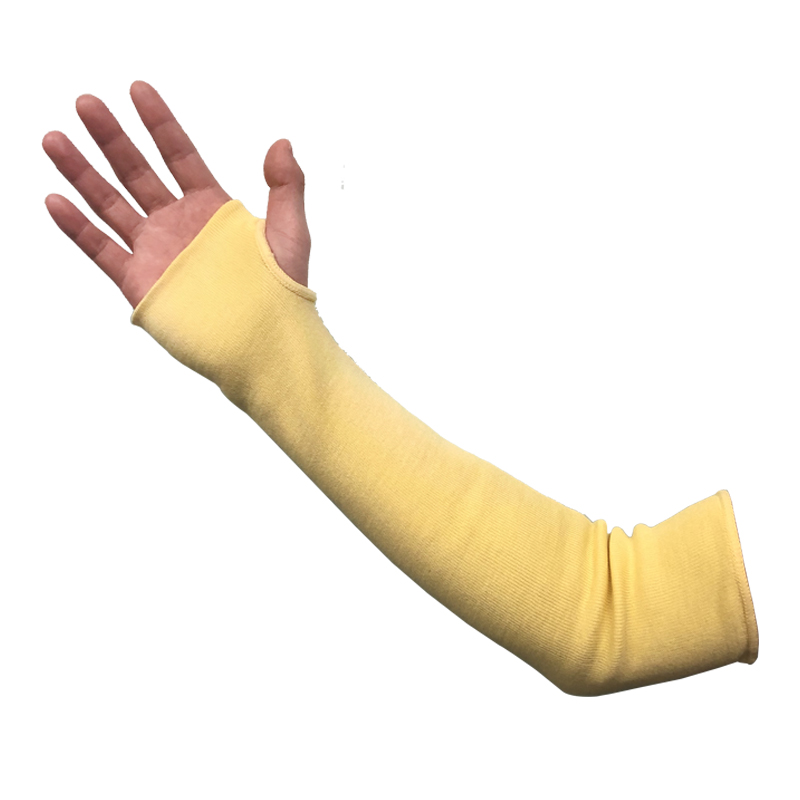NY1350F-ECO Pro
15 Gauge RPET Polyester Knitted Liner Microfoam Nitrile Coated Gloves [NY1350F-ECO Pro]
15 gauge RPET polyester and spandex knitted liner, super-thin microfoam nitrile palm coated gloves, Eco friendly. The RPET polyester liner, made from recycled PET material, is durable and eco-friendly. The super-thin microfoam nitrile palm coating excels in both breathability and grip.






Product Details
- Liner:15 gauge polyester made from recycled PET bottles, spandex
- Coating:Microfoam nitrile
- Size:7/S, 8/M, 9/L, 10/XL, 11/2XL
- MOQ:12000 pairs
- Lead Time:60-120 days
- Customization:Logo, Color, Packing
Show full description
Feature
- Innovative use of recycled PET material for minimal contamination
- Spandex enhances durability and flexibility for a snug fit
- Super thin microfoam nitrile palm coating excels in both breathability and grip in dry, wet, and oily conditions
- Suitable for use in the aerospace, agriculture, automobile, construction, warehouse, maintenance, manufacturing and oil industries
- Eco-friendly
- Customizable
Show full description

